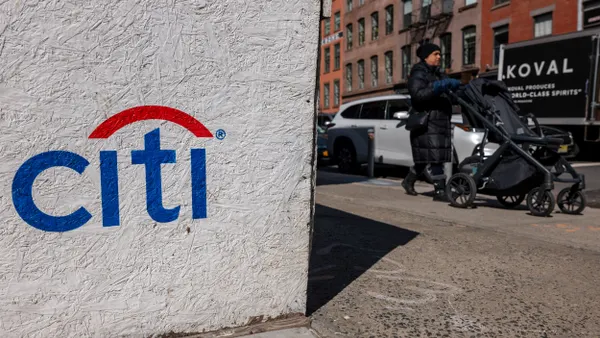Morgan Stanley CEO James Gorman offered a mea culpa Monday over the bank’s office-return strategy.
“I thought we would have been out of it past Labor Day and we’re not,” he told CNBC. “I was wrong on this.”
Unlike several banks, Morgan Stanley did not formalize an office-return date. Rather, Gorman sent a “directionally very strong message,” he said.
“[By] Labor Day, I’ll be very disappointed if people haven’t found their way into the office, and then we’ll have a different kind of conversation,” Gorman said in June at a financial services conference the bank organized. "If you can go into a restaurant in New York City, you can come into the office and we want you in the office.”
Gorman said Monday he anticipates COVID-19 variants could disrupt work life “through most of next year.”
“Everybody’s still finding their way and then you get the omicron variant; who knows, we’ll have pi, we’ll have theta and epsilon, and we’ll eventually run out letters of the alphabet,” he said Monday. “It’s continuing to be an issue.”
It’s one that’s touched Gorman personally. He recovered from COVID-19 in March 2020. Despite taking a somewhat aggressive stance toward a return to the office, Gorman was not the most vocal CEO in his field.
Frustrated with the slower-than-expected pace of vaccine rollout in February, Goldman Sachs CEO David Solomon called the prospect of continued remote work “an aberration.”
"This is not ideal for us and it’s not a new normal," he said.
Nor was Gorman the only CEO to project Labor Day as a target date for business as usual.
"We want people back at work, and my view is, some time in September, October, it will look just like it did before, and everyone's going to be happy with it,” JPMorgan Chase CEO Jamie Dimon said in May.
Working exclusively from home "doesn't work for those who want to hustle,” Dimon asserted.
“It doesn't work for spontaneous idea generation. It doesn't work for culture,” he said. “It’s got to work for the clients.”
Weeks earlier, Dimon told wealth-management clients that corporate America may be "overdoing it a bit" in its reluctance to return to the office.
"A lot of people say, 'I'm not going to go back to work.' Look at their Instagrams," he said. "They didn't get sick from coming into the office. They got sick partying.”
Omicron effect
JPMorgan told London-based employees Thursday it is reassessing “who needs to be coming into the office and who should revert to working from home on a more regular basis,” according to an internal memo seen by Bloomberg. The bank anticipates “a reduction in the amount of people coming into our offices, but our buildings will continue to be accessible to all employees who need to come in.”
The U.K. on Monday confirmed its first death from COVID-19’s omicron variant. The variant’s infection rate is doubling every two or three days, the nation’s health secretary, Sajid Javid, said earlier in the day, adding omicron could become the dominant COVID-19 variant in London by this week.
Goldman Sachs, HSBC, Citi, Barclays, Standard Chartered and NatWest likewise have told U.K. employees they should work from home where possible. Deutsche Bank said it began significantly reducing the number of employees in its offices as of Monday.
New York-based investment bank Jefferies told employees Wednesday they should work remotely for the rest of the month if they can, as 40 new COVID-19 cases had been reported throughout the company in December’s first week, though it did not detail from which offices infected employees were based.
Morgan Stanley's policies
Morgan Stanley began restricting unvaccinated people — employees, clients and visitors — from entering its New York City and Westchester County offices in mid-July. It began requiring employees working from its offices to provide proof of vaccination by Oct. 1. Staff members who are not vaccinated must work remotely, according to company policy.
About 95% of Morgan Stanley employees have received the COVID-19 vaccine, Gorman told CNBC on Monday. However, the proportion of workers who have returned to the bank’s New York headquarters — about 65% of vaccinated employees — likely falls well short of earlier expectation.
Gorman said in June he figured employees’ vaccination rate would ultimately jump to 98%, with a small percentage refusing the jab for health or religious reasons.
“Right now, I’m focused on the 98%, not the 1% or 2%,” Gorman said in June.













